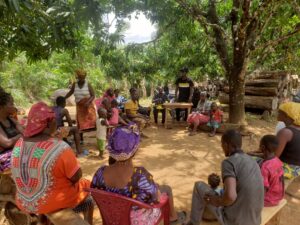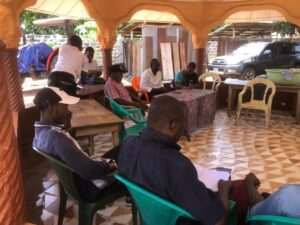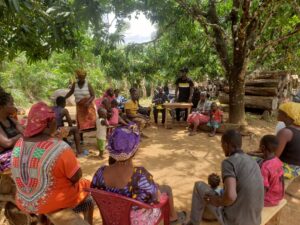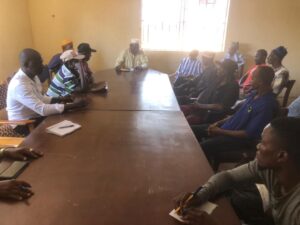



A Successful Anthrax Vaccination Campaign in Sierra Leone Safeguards Livestock and Communities
Sierra Leone has achieved a remarkable milestone in safeguarding livestock and rural communities through a highly successful anthrax vaccination campaign in the districts of Falaba, Koinadugu, Port Loko, Karene, and Kambia. The collaborative effort between the government, veterinary authorities, and local communities aimed to prevent the spread of this highly contagious bacterial infection that poses a significant threat to both animal and human health. The campaign involved extensive outreach and education programs to raise awareness about the importance of vaccination and disease prevention. As a result, thousands of livestock were vaccinated, protecting them from the devastating effects of anthrax. The success of this campaign is a testament to the power of collaboration and community engagement in promoting public health and safety. It also highlights the critical role that veterinary authorities play in safeguarding livestock and rural communities from infectious diseases. Moving forward, it is essential to continue investing in these efforts to ensure that we can effectively respond to emerging threats and protect our most vulnerable populations. By working together, we can build a safer, healthier future for all.
Extensive awareness programs educated farmers about the importance of vaccination and preventive measures. With funding support from the World Bank through the IHPAU and vaccine assistance from the FAO, the Ministry of Agricultural and Food Security’s Livestock Division, in collaboration with the One Health approach, ensured the smooth administration of vaccinations for cattle, sheep, and goats. These livestock are crucial for the income and sustenance of rural families, as they provide milk, meat, and other by-products. The vaccination program helped prevent the spread of diseases among the animals, which can be devastating for farmers who rely on them for their livelihoods. In addition to the vaccination program, the ministry also provided training and education to farmers on proper animal care and management practices. This included information on nutrition, disease prevention, and breeding techniques. By improving the health and productivity of livestock, the Ministry is helping to boost rural economies and improve food security in the country. The One Health approach recognizes that human health is closely linked to animal health and environmental health, and this holistic approach is essential for sustainable development. With continued support from international organizations like FAO and IHPAU, as well as local governments and communities, we can work towards a healthier future for both people and animals alike.
Community engagement by local leaders and health workers played a vital role in fostering trust and encouraging participation. The successful campaign reduces economic losses, promotes food security, and lowers the risk of anthrax transmission to humans. Sierra Leone’s commitment to animal and public health enhances the resilience of the agricultural sector, instilling confidence among farmers and consumers. The impact of workers in Sierra Leone cannot be overstated. Their efforts have been instrumental in fostering trust and encouraging participation, which has resulted in a successful campaign that has reduced economic losses, promoted food security, and lowered the risk of anthrax transmission to humans. This commitment to animal and public health is a testament to the country’s resilience in the agricultural sector, instilling confidence among farmers and consumers alike. The importance of this work cannot be underestimated, as it not only benefits the economy but also ensures the health and safety of both animals and humans. It is clear that these workers play a vital role in maintaining Sierra Leone’s agricultural sector and promoting sustainable development for years to come.
Stay tuned for the data from the intervention, which will be shared to further enhance knowledge and future disease control efforts.
